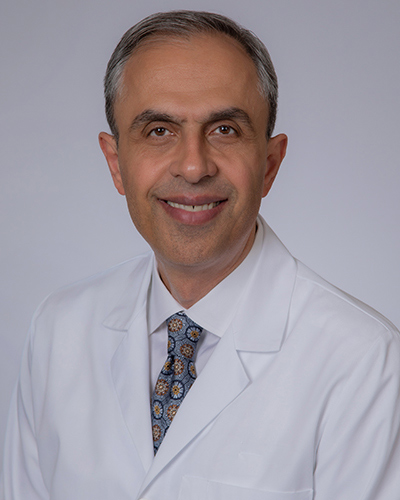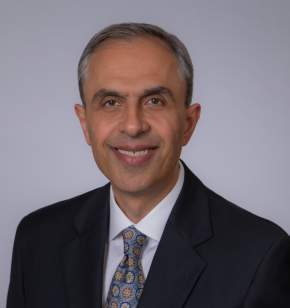Purpose of a Second Opinion


Patients ask for second medical opinions for a variety of reasons. Some patients feel that their doctors are not fully addressing their medical, financial, and/or ethical concerns. For other patients, confirming a diagnosis, finding alternative treatment options, and gauging a physician’s or surgeon’s experience is the purpose of a second opinion.
Herein, we will review some common reasons to seek a neurosurgeon second opinion and how a second opinion can benefit you.
What is the success rate of a second opinion?
A second opinion in neurosurgery occurs when a patient consults a different neurosurgeon for evaluation and advice after receiving an initial diagnosis and treatment plan. This involves the second neurosurgeon reviewing the patient’s medical records, imaging, and other pertinent information to provide their perspective on the diagnosis, prognosis, and suggested treatment options, including surgery. Seeking a second opinion can offer patients reassurance, validate or clarify the original diagnosis, explore alternative treatments, and help them make a better-informed decision about their care.
Common and Practical Reasons for Seeking a neurosurgeon second opinion
Neurosurgery is unlike other fields of medicine. Conditions requiring neurosurgical intervention are potentially life-altering. It is in your best interest to make sure that your surgeon and the plan are in line with your health goals and you have complete confidence in your surgeon and the treatment plan. Here are three practical reasons why a neurosurgeon second opinion may be a wise decision.
- Serious health issue – Diagnosing diseases of the brain, spine, and nerves can be complex. Having a second professional review your initial diagnosis and treatment plan is a good idea as a second neurosurgeon may offer additional knowledge or experience. With a serious health issue such as a neurosurgical condition, you may want to understand all you can about your condition and the available options for treatment.
- Rare condition – Because some neurological disorders are rare, the complete knowledge base about these conditions may be lacking. In these cases, getting a second opinion from specialists who have studied and treated your specific disease is vital.
- Invasive treatment – If your proposed treatment plan involves a procedure such as neurosurgery, you may want to opt for a neurosurgeon second opinion due to the invasive nature and life-changing possibility of this treatment option. Remember that you are in control of your healthcare decisions, and unless it is an emergency surgery, deciding to have a surgical procedure requires some deliberation.
Why should you have your surgery with Dr. Cohen?
Dr. Cohen
- 7,500+ specialized surgeries performed by your chosen surgeon
- More personalized care
- Extensive experience = higher success rate and quicker recovery times
Major Health Centers
- No control over choosing the surgeon caring for you
- One-size-fits-all care
- Less specialization
For more reasons, please click here.
Concerns About Reputation, Decision-Making, and Diagnostics
Undergoing a neurosurgical procedure can be anxiety-provoking. Fears of the unknown are commonplace. Your neurosurgeon should evaluate the history of your condition, conduct a thorough physical examination, and obtain pertinent laboratory tests and imaging before concluding and recommending treatment. Some providers have a reputation for being conservative, while others have reputations of being aggressive.
A conservative treatment approach relies on less invasive treatment options such as medications, injections, or physical therapy. In contrast, an aggressive treatment approach tends to favor more invasive treatment options such as surgery. Often, these practice styles are based on clinical experience obtained during residency training and almost a decade of neurosurgical practice. Nevertheless, differences in medical decision-making can occur and it can be reassuring to collect more than one opinion before deciding to undergo a serious elective procedure.
The availability of cutting-edge technology and diagnostic tools are also important when considering a neurosurgeon second opinion. Large academic hospitals often have additional resources and specialists that allow for advanced imaging and diagnostic capabilities. For complex and rare conditions, these facilities may offer a care team with a broader range of experience which can contribute to better patient care.
Although large academic centers are great locations to seek a second opinion, don’t overlook local facilities and institutions in your area. Local neurosurgeons who have trained at major academic centers bring their expertise with them. At the end of the day, many patients agree that the reputation of the surgeon over his or her institution matters when it comes to selecting a provider for their neurosurgical care. A great deal of information can be found on the internet which is a good starting place when considering a neurosurgeon second opinion.
Concerns About Finances and Logistics
Second opinions may present financial and logistical obstacles. Insurance companies may require additional copays or out-of-pocket expenses depending on your network of care providers. It is important to consult your insurance company before selecting a neurosurgeon for your second opinion. Routine neurosurgical procedures can be performed at smaller community hospitals effectively. For some patients, it may not be worth the wait, stress, and financial burden to seek second opinions at larger institutions for routine procedures.
Large academic centers are often located in major cities. Travel and housing accommodations can be cost-prohibitive, especially when considering repeat visits for rehabilitation and follow-up appointments. Time required for travel is also an important consideration given that it may extend the time away from work or school.
Despite these concerns, many patients elect to seek care at large academic centers. However, this is a personal decision for you and your loved ones that depends on a multitude of individual factors. Financial and logistical concerns are important considerations when choosing your care team. Online consultations for second opinions are becoming more commonplace. Be sure to ask about virtual appointments to accommodate some of these financial and logistical concerns.
Concerns About Ethics and Patient-Centered Treatment
Patients today are more diverse than ever. It is important to find a surgeon that shares your core values and employs a patient-centered approach. For example, some patients have religious or personal reservations about receiving blood or certain types of animal products in the form of implants or medical devices. These restrictions can increase the complexity of certain treatment plans.
In these cases, you may also want to identify your surgeon’s experience in overcoming these challenges. Some surgeons may be more experienced with caring for a particular population of patients requiring accommodations and may be a better fit to care for you. Finding a surgeon who is willing to listen to your ethical concerns and offer a patient-centered treatment approach is key to ensuring the best clinical outcome and patient satisfaction.











